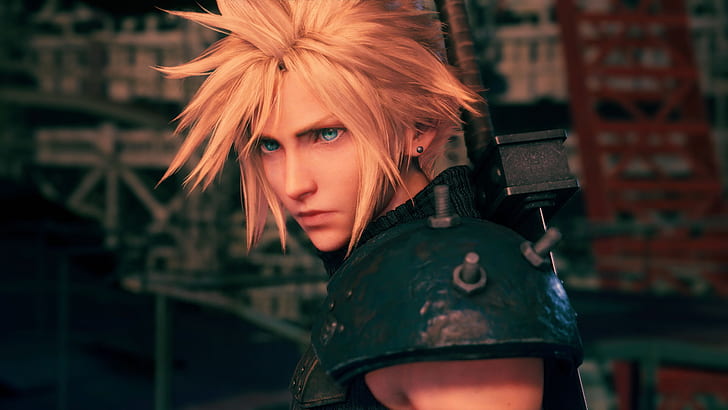
Final Fantasy 7 Rebirth Asks Modders to Keep It Classy
December 19, 2024No inappropriate mods, says FF7 Rebirth director!
Final Fantasy 7 Rebirth is all set to make its much-anticipated leap to PC on January 23, and with it comes the inevitable surge of creativity from the modding community. However, Naoki Hamaguchi, the game’s director, has a special request: keep it respectful. While modding is celebrated for its transformative potential, Hamaguchi is drawing a clear line against inappropriate or offensive content.
Table of Contents
Modding in Final Fantasy: A Balancing Act

The world of modding is vast and diverse, from practical enhancements to downright wild creations. Mods can introduce seamless co-op in Elden Ring or even entire expansions for games like Fallout 4. However, the darker corners of modding—where “offensive or inappropriate” creations thrive—have become a topic of concern for developers.
Naoki Hamaguchi has emphasized that while Square Enix supports the modding community’s creativity, it is imperative to avoid mods that might tarnish the game’s experience. Speaking to the Epic Games Store, Hamaguchi stated, “While the team has no plans for official in-game mod support, we respect the creativity of the modding community and welcome their creations. Though we ask modders not to create or install anything offensive or inappropriate.”
This sentiment echoes previous statements by Final Fantasy 16 producer Naoki Yoshida, who issued a similar plea before the PC release of the game.
Why Mods Matter to Gamers
Modding has become an integral part of gaming culture. It allows players to personalize their experience, offering everything from quality-of-life improvements to visually stunning reimaginings of beloved titles. Mods breathe new life into games, often extending their longevity far beyond the original release cycle.
For example, mods have added entirely new mechanics to The Elder Scrolls V: Skyrim and turned Grand Theft Auto V into a playground for the imagination. But not all mods aim to enhance gameplay—some delve into territories that developers and fans alike might find distasteful or offensive.
Square Enix’s Stance on Modding

Square Enix is no stranger to the modding phenomenon. With Final Fantasy 7 Rebirth being the latest entry in a series that has spanned decades and generations of fans, the stakes are higher than ever. The game is a sequel to Final Fantasy 7 Remake, a title that IGN hailed as a “best-in-class action RPG full of exciting challenges and an awe-inspiring recreation of a world that has meant so much to so many for so long.”
By choosing not to provide official mod support, Square Enix is leaving modding entirely in the hands of the community. This hands-off approach has its risks, as it relies on modders to self-regulate their creativity. While this can foster incredible innovation, it also opens the door for problematic content.
What Makes a Mod “Inappropriate”?
Hamaguchi’s request might seem straightforward, but the definition of what qualifies as “offensive or inappropriate” can vary widely. Typically, mods fall into this category when they:
- Include explicit or adult content that isn’t suitable for all audiences.
- Disrespect the integrity of the game’s characters or narrative.
- Use assets that promote harmful stereotypes or offensive humour.
For a game as cherished as Final Fantasy 7 Rebirth, inappropriate mods could tarnish its reputation, especially given the deep emotional connection fans have to its characters and story.
Can Square Enix Enforce This Request?
Without official mod support, Square Enix has limited influence over what the community creates. Platforms like Nexus Mods or Steam Workshop often host mods, but they operate independently of game developers. Moderators on these platforms may choose to remove offensive mods, but enforcement is inconsistent.
This makes Hamaguchi’s plea a moral rather than a legal appeal. It’s an invitation for modders to align their creativity with the spirit of the game, rather than exploit it for shock value or attention.
Why This Matters

Hamaguchi’s message highlights a broader conversation about the responsibility of modders. While gaming has always been a space for freedom of expression, developers are increasingly calling for respect and consideration. Balancing creativity with ethical boundaries is crucial, especially as games reach wider and more diverse audiences.
For Final Fantasy 7 Rebirth, this is particularly important. The game’s world and characters have become iconic, and preserving their dignity is essential for maintaining the franchise’s legacy.
The Future of Modding in Final Fantasy
Despite the lack of official support, modding will undoubtedly thrive once Final Fantasy 7 Rebirth hits PC. Fans are likely to create mods that enhance graphics, add new content, or even introduce gameplay tweaks. Whether or not they heed Hamaguchi’s request, however, remains to be seen.
The Final Fantasy series has always been a bridge between nostalgia and innovation. Final Fantasy 7 Rebirth continues this tradition by inviting players to reimagine an iconic story for a new era. The modding community has the power to elevate this experience—or derail it.



